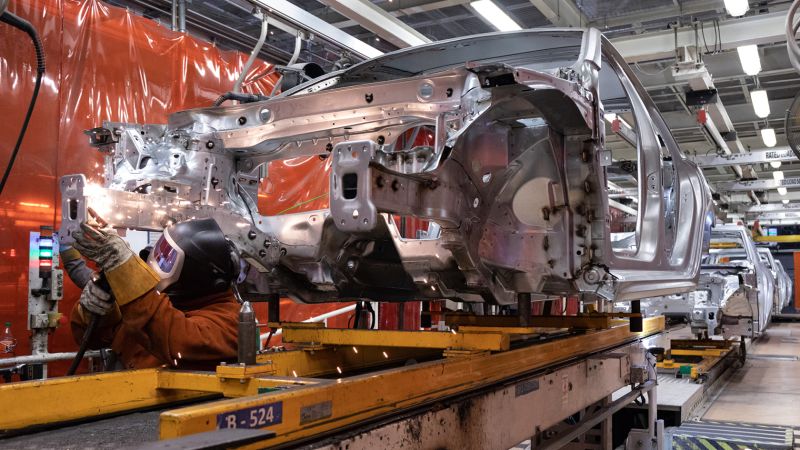The United Auto Workers union won a closely watched election to represent 4,300 hourly workers at Volkswagen’s plant in Chattanooga, Tennessee, marking a significant breakthrough in the effort to organize workers at non-union auto plants across the United States. With 73% of the votes counted in favor of the union, the UAW claimed victory, highlighting the readiness of Southern workers to stand up and improve their working conditions. The victory could potentially increase the union’s leverage in future contract negotiations, as there are roughly 150,000 workers at nonunion auto plants in the U.S.
The UAW’s success at Volkswagen’s plant in Chattanooga could serve as a key beachhead for unions in Southern states, where union representation among workers is significantly lower than in Northern industrial states. The union has also announced efforts to represent workers at nine other foreign automakers with American plants, as well as at three American automakers producing electric vehicles. While Volkswagen remained neutral during the organizing campaign, many nonunion automakers gave their workers raises following a six-week strike against unionized automakers last fall.
The average worker at Volkswagen’s Chattanooga plant earns about $60,000 a year before bonuses and benefits, while workers under the recent UAW contract now make about $36 an hour, amounting to around $75,000 a year before overtime, bonuses, and benefits. However, a coalition of six Southern Republican governors, including Tennessee Gov. Bill Lee, opposed the union’s efforts by arguing that unionization could put nonunion jobs at risk. Despite previous challenges faced by the UAW in representing nonunion auto workers, the victory at Volkswagen’s plant in Chattanooga marks a significant milestone for the union.
This victory is part of the UAW’s broader effort to organize workers at nonunion auto plants across the U.S., including at the American plants of eight foreign automakers. The union is aiming to increase its representation among workers in the auto industry through strategic organizing campaigns and ongoing efforts to secure collective bargaining rights for workers. While the union has faced opposition from some political leaders and employers, its recent success at Volkswagen’s plant in Chattanooga represents a significant step forward in its overall organizing efforts.
Moving forward, the UAW is actively seeking to represent workers at a range of auto plants, including those producing electric vehicles and those owned by foreign automakers. As the union continues to pursue opportunities to organize workers and secure better working conditions and pay for its members, the success at Volkswagen’s plant in Chattanooga serves as a strong foundation for future organizing efforts across the auto industry. The UAW’s victory in representation at the plant showcases the potential for increased union presence at nonunion auto plants, potentially leading to improvements for workers in these facilities.


